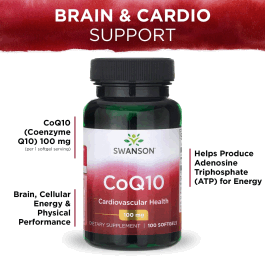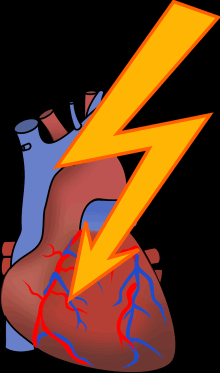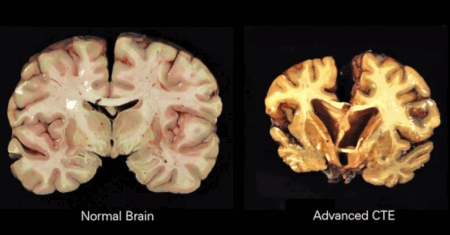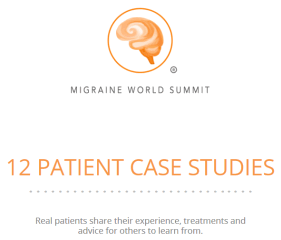Coenzyme Q10 (CoQ10): How Well Does It Fight Migraine?
Coenzyme Q10, commonly known as CoQ10, has become increasingly popular in recent years as a supplement to fight migraine, heart conditions, and a few other medical issues. A study last month investigated just how and how well CoQ10 works for migraine.

The meta study looked at five studies with a total of 346 patients.
The not-so-encouraging news was that CoQ10 didn’t perform well in actually reducing the severity of migraine attacks, or even the number of attacks. It didn’t make things worse, but it didn’t rise above what a placebo would have done.
You might ask, what good news could possibly be left? Well, there is actually surprisingly good news.
CoQ10 did reduce the length of attacks, and so it actually reduced the number of days with migraine symptoms per month.
In addition, CoQ10 is a substance that’s naturally in the body, and there are usually no side effects whatsoever. That’s why it has been, and continues to be, a viable option to fight migraine.
Quick Tips for Taking CoQ10
- Do not expect CoQ10 to work immediately. You need to take it regularly for three to four months before you’ll see improvement. Track your improvement to see how much it helps. Also check to see if symptoms like nausea are lessened.
- Why does CoQ10 work for some and not others? It may have to do with CoQ10 “deficiency”. If you have a lab test, be sure to check the numbers – your levels should be at least 0.7 (see Are You CoQ10 Deficient?).
- Talk to your doctor about doses, but a typical dose for migraine is 300mg/day for adults. Note that this is a higher dose than what is typically taken for other conditions.
- CoQ10 has also been used in children and youth. It may also help with cyclical vomiting syndrome.
- If you have a heart condition, diabetes, or thyroid issues, talk to your doctor about this supplement.
- Use a trusted brand. Consumer Labs recommends Swanson brand CoQ10 on the inexpensive end, and overall best Doctor’s Best High Absorption CoQ10.
- Bonus information: Some researchers believe that CoQ10 may slow the progression of Alzheimer’s.
- For best results, take the supplement with a meal containing fat. If you’re only taking one dose a day, taking it later in the day (supper, evening) may also improve its absorption.
For more information:
- Study abstract: Efficacy of Co Q10 as Supplementation for Migraine: A Meta?Analysis
- Coenzyme Q10 and Migraine
- Coenzyme Q10 (Milton S. Hershey Medical Center)

 Our knowledge of the stroke-migraine connection continues to increase. We do know that there is a link between migraine and stroke. There seems to be some genetic reason for this, particularly in the case of
Our knowledge of the stroke-migraine connection continues to increase. We do know that there is a link between migraine and stroke. There seems to be some genetic reason for this, particularly in the case of 
 Back to the study. The study focuses first on an autopsy of four teenagers, in which CTE was detected. Then researchers tested a hypothesis that a hit to the head could cause CTE. (Dr. Lee Goldstein, who took part of the study, does an impressive job explaining in the video below – please take the time to watch it.)
Back to the study. The study focuses first on an autopsy of four teenagers, in which CTE was detected. Then researchers tested a hypothesis that a hit to the head could cause CTE. (Dr. Lee Goldstein, who took part of the study, does an impressive job explaining in the video below – please take the time to watch it.)